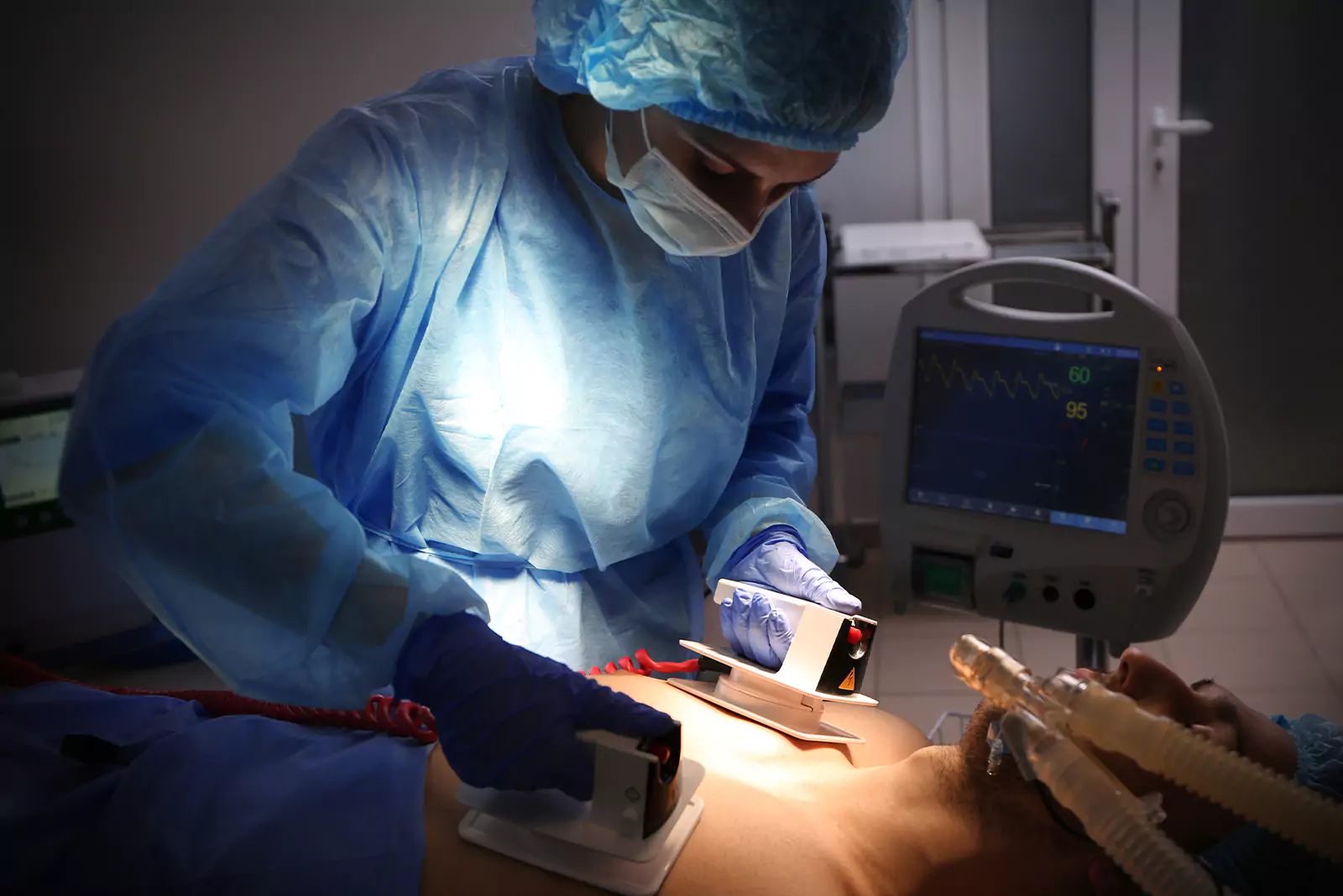
What is Electroconvulsive Therapy (ECT)?
Electroconvulsive Therapy (ECT) is a medical treatment in which small, controlled electric currents are passed through the brain under general anesthesia to initiate brief, therapeutic seizures. ECT is used mainly to treat severe depression, treatment-resistant mental illnesses, and acute psychiatric emergencies.
At Calida Rehab, ECT is administered under strict clinical protocols by a team of psychiatrists, anesthesiologists, and nursing staff in a controlled hospital environment. It is used only when clinically necessary, with informed consent and full transparency.
Conditions Treated with ECT at Calida:
-
Major Depressive Disorder (especially with suicidal thoughts)
-
Severe Bipolar Depression or Mania
-
Schizophrenia with catatonia or severe psychosis
-
Treatment-resistant psychiatric conditions
-
Postpartum psychosis
-
Acute agitation unresponsive to medication
ECT is often considered when medications or psychotherapy alone are not effective or when urgent relief is needed.
Why Choose Calida Rehab for ECT?
At Calida Rehab, we understand that choosing ECT is a serious and sensitive decision. That’s why we prioritize medical safety, emotional care, transparency, and dignity throughout the entire process. Our goal is to deliver ECT ethically, effectively, and compassionately to clients who truly need it.
-
ECT is administered by a psychiatrist, anesthesiologist, and trained nurses
-
Each session is conducted with vital sign monitoring, anesthesia, and emergency protocols
-
Patients are fully evaluated before, during, and after treatment
-
Informed consent is mandatory, and all procedures are explained in detail
-
For clients unable to consent due to psychiatric symptoms, legal guardian consent is taken under the Indian Mental Healthcare Act 2017
-
ECT is not used as punishment or forced compliance
-
Conducted in our affiliated medical facilities with recovery rooms
-
Pre-treatment anxiety is managed with supportive counseling and calming routines
-
Sessions are typically done twice weekly for 4–6 treatments, based on need
-
Clients are observed for side effects like headache, fatigue, or memory issues.
-
Follow-up therapy is offered to integrate emotional responses and support recovery
-
Outpatient continuation and maintenance ECT available if clinically advised
What to Expect During ECT Treatment at Calida Rehab
At Calida Rehab, the ECT process is clinical, controlled, and compassionate. Every step is designed to ensure safety, dignity, and psychological comfort. Here’s what clients and families can expect:
-
Full psychiatric assessment and history
-
Medical clearance (blood tests, ECG, anesthesia evaluation)
-
Consent from the client or guardian (as per legal and ethical guidelines)
-
Education about ECT benefits, risks, and alternatives
-
Pre-therapy counseling to manage anxiety
-
Conducted in a certified hospital or clinical setting
-
The client is given short-acting general anesthesia and muscle relaxants.
-
Electrodes are placed on the scalp — usually bilateral or unilateral.
-
A brief, controlled seizure (30–60 seconds) is induced.
-
The entire session takes ~10–15 minutes; no physical pain is felt due to anesthesia.
-
Clients are monitored in a recovery room until fully alert.
-
Common temporary effects: drowsiness, mild confusion, or headache
-
Light meals and emotional support are provided
-
Most clients return to normal activities the same day.
-
A typical course involves 6–12 sessions, adjusted case-by-case.
-
Continued psychiatric care (medication + psychotherapy) is integrated
-
Regular reviews with psychiatrists to monitor mood, cognition, and safety
ECT Program Options – Inpatient, Emergency & Maintenance
At Calida Rehab, Electroconvulsive Therapy is provided through structured and medically supervised programs based on clinical need, urgency, and treatment response. We offer:
Inpatient ECT Program
Best suited for:
-
Severe depression with suicidal ideation
-
Schizophrenia with agitation or catatonia
-
Cases requiring round-the-clock psychiatric stabilization
Includes:
-
Residential psychiatric care
-
ECT sessions 2–3 times per week
-
24/7 monitoring, medication, and therapy support
-
Nutritional, family, and emotional support during hospitalization
Emergency ECT Intervention
Offered for:
-
Rapidly deteriorating mental state
-
Risk to self or others
-
Non-response to medications
Access:
-
Fast-track psychiatric and anesthetic clearance
-
Immediate admission and stabilization
-
Legal and ethical processing with family involvement
Maintenance ECT (mECT)
For long-term relapse prevention:
-
Monthly or bi-monthly ECT sessions
-
Suitable for recurrent depression or chronic psychiatric cases
-
Provided on an outpatient basis with follow-up therapy
Take the First Step – Contact Calida Rehab
If you or a loved one is struggling with severe mental health symptoms and other treatments have failed, Electroconvulsive Therapy may offer a safe and effective path to relief. At Calida Rehab, we provide ECT with clinical integrity, compassion, and full medical supervision — never as a last hope but as a renewed opportunity for healing.
We’re here to guide you through the decision-making process, answer your concerns, and support you every step of the way.
ECT Services Available In:
-
Mumbai – Hospital-based psychiatric facilities with expert teams
-
Pune – Structured inpatient care with post-ECT integration
-
Karjat – Calm, nature-assisted recovery setting with partner hospital access
Electroconvulsive Therapy at Calida Rehab – FAQs
No. ECT is performed under general anesthesia, so you won’t feel pain during the procedure. It is safe when done by trained professionals. Most side effects are temporary and manageable.
Some clients experience short-term memory loss, especially around the time of treatment. These effects are usually temporary and improve over weeks. Long-term memory is rarely affected.
Most clients receive 6 to 12 sessions over 2 to 4 weeks, depending on their diagnosis and response. The psychiatrist will reassess after every few sessions to monitor progress.
ECT is only offered after detailed evaluation by a psychiatrist and only when it is medically justified. Informed consent is mandatory before starting treatment.
ECT is often used when medications don’t work or when someone is severely depressed, suicidal, or unresponsive to therapy. It is a last resort but highly effective treatment, especially in urgent situations.






